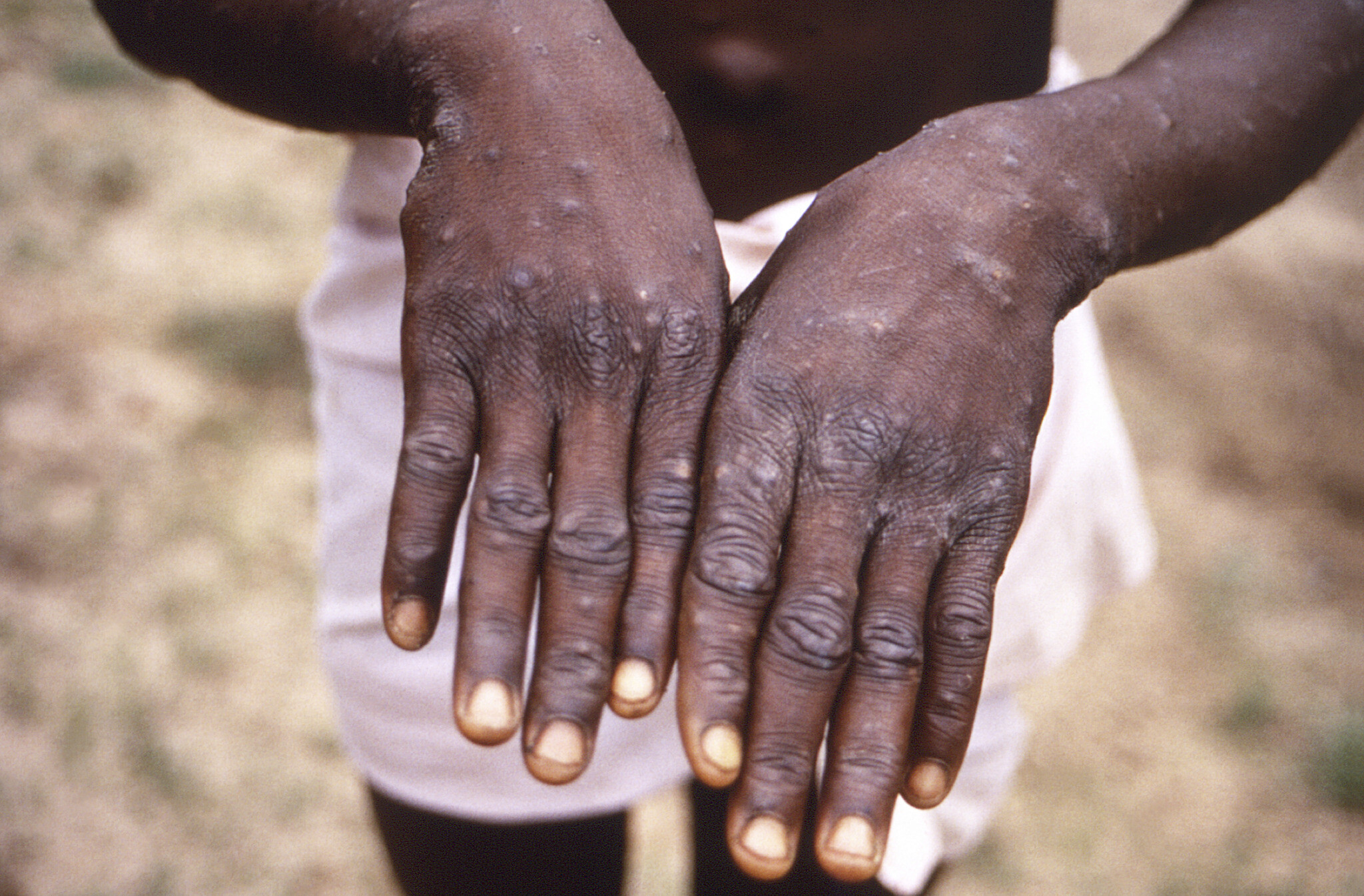Health officials downplayed fears of a monkeypox outbreak on Saturday after confirming the first case of the disease in Israel, and as health officials wrapped up a meeting about the viral infection, which has been surfacing in Europe and North America.
Israel’s first suspected case was reported on Friday, and confirmed during the meeting Saturday night. The 30-year-old man is hospitalized in Tel Aviv in mild condition.
The Israel Center for Disease Control committee finished an urgent Saturday night meeting about monkeypox without making any major decisions, but vowed to monitor the disease.
Dr. Boaz Raz, the head of the committee, said he did not expect a widespread outbreak.
“This is not an epidemic, but we need to raise public awareness,” Raz said, according to Channel 13.
The Health Ministry called on anyone who has returned from abroad and has a fever and a rash to contact a doctor.
The Health Ministry estimates there will be dozens more cases in Israel, but that there is no danger to the general public and that the disease will not become an epidemic, the Kan public broadcaster reported.
The ministry stressed that the disease is usually mild and there are few instances of serious illness or death.
The ministry also said it is “examining equipping itself with vaccines and relevant medications,” as well as gearing up for further diagnoses.
At the meeting, the health experts discussed administering vaccines to people after they were exposed, which could at that point still ward off a serious case, Channel 13 said.

This 1997 image provided by the CDC during an investigation into an outbreak of monkeypox, which took place in the Democratic Republic of the Congo (DRC), formerly Zaire, and depicts the dorsal surfaces of the hands of a monkeypox case patient, who was displaying the appearance of the characteristic rash during its recuperative stage. (CDC via AP)
Galia Rahav, the head of Sheba Medical Center’s Infectious Disease Unit and a member of the committee, told Channel 13: “This is a completely different infection than the coronavirus, a lot less infectious.”
She did it didn’t spread through particles in the air like COVID-19, making it less transmissible. She also that up until 1996, IDF recruits received smallpox vaccinations, which partially protect against monkeypox, meaning that a large part of the adult population in Israel may have some protection.
Medical experts in the LGBTQ community took part in the Center for Disease Control committee meeting. The World Health Organization has said it is investigating the fact that many cases reported in other countries were people identifying as gay or bisexual. The Israeli experts urged avoiding the subject so the disease would not be stigmatized.
They also called for preparations ahead of next month’s gay pride events, which are expected to draw 100,000 participants, including many from abroad.
The health experts also discussed whether or not to vaccinate medical staff who come in close contact with infected patients, or people who were exposed and have compromised immune systems.
Israel’s first case of the virus was a man who returned to Israel recently from abroad. He is in isolation at Ichilov Hospital in Tel Aviv and in good condition.
Top European health officials warned Friday that cases could accelerate in the coming months, as the virus has spread to at least eight European countries. The World Health Organization has confirmed 92 monkeypox cases in 12 countries.
To date, no one has died in the outbreak. Monkeypox typically causes fever, chills, rash and lesions on the face or genitals. WHO estimates the disease is fatal for up to one in 10 people, but smallpox vaccines are protective and some antiviral drugs are being developed.
The virus, which causes distinctive pustules, has previously been seen in Central and West Africa, but over recent weeks cases have been detected in European countries including Portugal and Sweden as well as the United States, Canada and Australia.
Monkeypox usually clears up after two to four weeks, according to the WHO.
You’re a dedicated reader

We’re really pleased that you’ve read X Times of Israel articles in the past month.
That’s why we started the Times of Israel ten years ago – to provide discerning readers like you with must-read coverage of Israel and the Jewish world.
So now we have a request. Unlike other news outlets, we haven’t put up a paywall. But as the journalism we do is costly, we invite readers for whom The Times of Israel has become important to help support our work by joining The Times of Israel Community.
For as little as $6 a month you can help support our quality journalism while enjoying The Times of Israel AD-FREE, as well as accessing exclusive content available only to Times of Israel Community members.
Thank you,
David Horovitz, Founding Editor of The Times of Israel